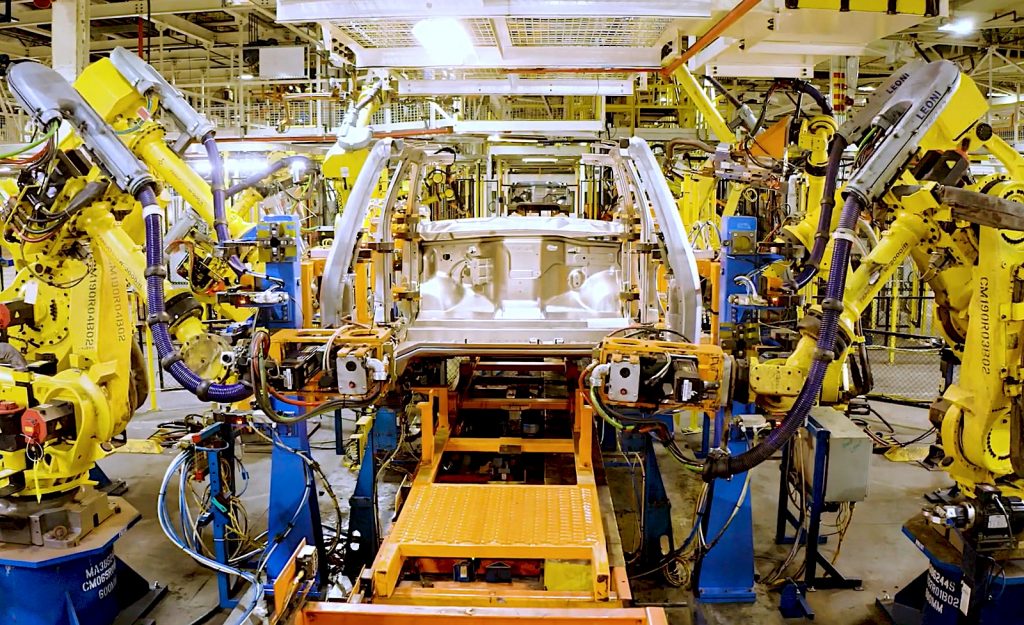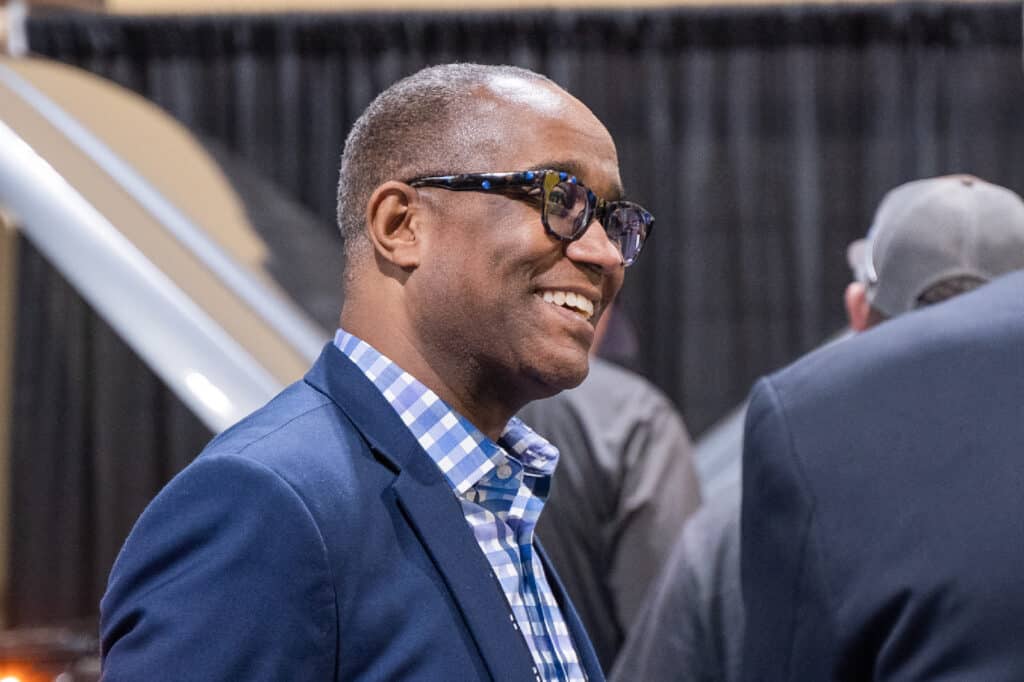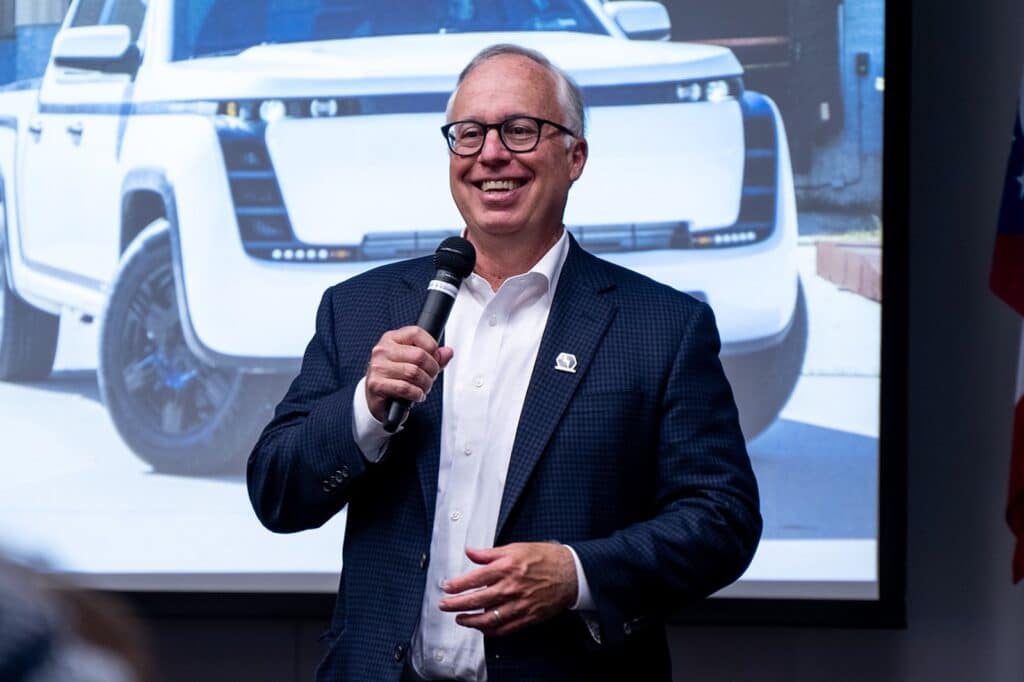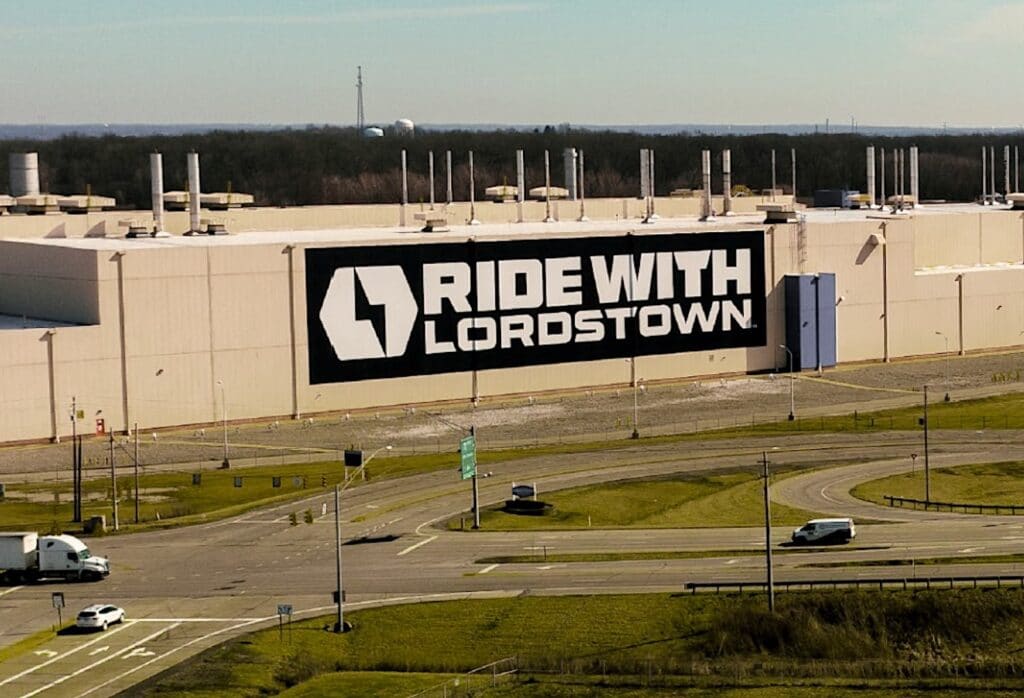
The largest electronics contract manufacturer in the world, Foxconn Technology Group, is increasing its investment in struggling electric vehicle startup Lordstown Motors Corp., which has started producing its first all-electric pickup truck at a former General Motors plant in Lordstown, Ohio.
The iPhone manufacturer purchased $170 million to buy common stock and newly created preferred shares, tossing another financial lifeline to Lordstown as it ramps up production of its Endurance pickup truck. Money raised from the equity sale will finance the engineering and finance operations, as well as constructing the first 500 pickup trucks.
In addition, the two companies plan to jointly develop an electric vehicle, although they declined to disclose further information on the initiative.
Deepening its U.S. ties

Foxconn first invested in Lordstown in 2021, when Taiwan-based Foxconn acquired most of the EV maker’s Ohio plant for $230 million. At the time, Foxconn also bought $50 million worth of Lordstown stock.
“Since announcing our first transaction with Foxconn more than a year ago, it has been our objective to develop a broad strategic partnership that leverages the capabilities of both companies. Foxconn’s latest investment is another step in that direction,” said Daniel Ninivaggi, executive chairman of Lordstown.
But Lordstown’s slow start has allowed competitors to leap ahead, with Ford’s F-150 Lightning already on the market, as is Rivian’s R1T. Chevrolet’s Silverado EV is coming to market in Spring 2023, while Tesla’s long-delayed Cybertruck is expected to begin production by the end of 2023. Following the announcement, shares of Lordstown increased by roughly 18% in extended trading Monday.
Scrambling to remain alive

The latest investment comes a week after the Saudi Arabian sovereign wealth fund and Foxconn reached an agreement last week to develop electric automobiles in Saudi Arabia.
The joint venture will be known as Ceer, which is derived the Arabic word for “drive.” BMW of Germany will provide technology under license to Ceer, which plans to begin selling electric cars in 2025. The new company is part of Saudi Arabia’s effort to wean its economy off of fossil fuels as automaker increasingly move away from internal combustion engines.
But the company seems to have regained its footing since shuffling its top management in July, when it named Edward Hightower company CEO. Hightower, who previously worked at General Motors and Ford, is the first Black CEO of a modern U.S. automaker.
“Over the last year, the LMC and Foxconn teams have worked collaboratively to bring the Endurance into commercial production, despite numerous external challenges,” Hightower said. “The combination of LMC’s experienced vehicle development team, Foxconn’s growing EV ecosystem, the MIH platform, and our asset-light business model will allow us to bring great EVs to market faster and more efficiently.”
Foxconn’s ultimate goal
It’s easy to think Lordstown is the major story here. In reality, the bigger story is Foxconn, which is setting itself up as a contract manufacturer of automobiles like VDL Nedcar or Magna Steyr. All three companies are reaping the benefits of the transition to EVs.
“There’s so much interest in jumping into the EV field, and a large portion of the investment needed to jump in is the actual manufacturing part portion of it,” said Sam Fiorani, vice president, Global Vehicle Forecasting at AutoForecast Solutions. “So getting somebody else to shoulder that allows all these startups to go in asset light.”

So far, the Lordstown plant is scheduled to produce Lordtown’s pickups, as well as the new Fisker Ocean. The plant was designed to handle 300,000 units annually. But Foxconn’s manufacturing for EV startups is a temporary solution for newer automakers.
“Contract manufacturing model hasn’t been something that an automaker has used for its primary production source with the exception of Fisker,” said Stephanie Brinley, principal automotive analyst at IHS Markit. “I think over time, they would probably shift to having their own production capacity, even if they start with contract manufacturing.”
That would free up space at Lordstown for Foxconn to build vehicles that have become too niche for mainstream manufacturers, but still prove profitable.
Of course, the logical question is whether Apple will tap Foxconn to build an Apple Car. But the answer remains elusive.
“I don’t have any clear indication that that Foxconn is looking to produce Apple cars in this out of this location,” Brinley said. “I think that the Apple will be looking for a bigger play in terms of volume.”
Yet there is a possibility that Foxconn could build an Apple Car.
“Foxconn is setting themselves up to be a contract supplier for automobiles,” Fiorani said. “Adding Apple is a possibility because Apple doesn’t make a lot of stuff on its own.”







